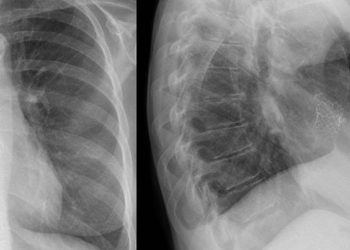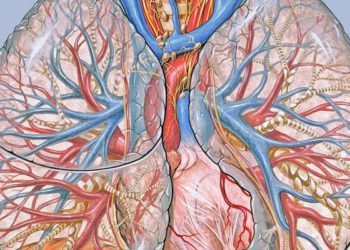Spiritual considerations not addressed by health care professionals in ICUs
1. Based on a multi-center study in ICUs, fewer than one in five conversations between surrogate decision makers and health care professionals regarding prognosis of the patient addressed spiritual concerns, even though most of the surrogates/patients followed a particular religion.
2. Furthermore, in instances where spiritual concerns were brought up by surrogate decision makers, health care professionals responded empathetically but rarely addressed the spiritual statement directly or in an open-ended way.
Evidence Rating Level: 2 (Good)
Study Rundown: Religious and spiritual beliefs are an important factor in the decisions made by many patients and their surrogates, especially in the intensive care unit (ICU), where patients are sicker and approach end of life. Experts have recommended that health care professionals should encourage conversations about patients’ spiritual beliefs. This study was conducted to identify how frequently spiritual concerns occurred in conversations between health care professionals and surrogate decision makers occurred in ICUs. The results showed that fewer than one in five conversations between surrogate decision makers and health care professionals addressed spiritual concerns, even though most of the surrogates/patients followed a particular religion. Furthermore, in instances where spiritual concerns were brought up by surrogate decision makers, health care professionals responded empathetically but rarely addressed the spiritual statement directly or in an open-ended way.
The strength of this study was the multi-center design, which improves generalizability, albeit to very specific scenarios. Since the study was conducted in targeted situations (intensive care units), and specific palliative care services were not necessarily employed, the results may not reflect the practices in many other situations than the one presented in the study.
Click to read the study, published today in JAMA Internal Medicine
Relevant Reading: Provision of spiritual support to patients with advanced cancer by religious communities and associations with medical care at the end of life
In-Depth [prospective cohort]: This study was conducted at six US medical centers from 2009 to 2012. Conversations between health care professionals and families were recorded and qualitatively coded to identify how spiritual considerations were included in goals of care discussions. The study included surrogate decision makers of adult patients who required mechanical ventilation or had very severe illness with significant risk of functional impairment.
A total of 546 surrogates and 150 health care professionals were included in the study. Surrogates were more likely to be Christian than their health care professionals (74.0% vs 44.1%). Spiritual ideas were raised in 40 of 249 (16.1%) family meetings. Surrogates raised the issue in 10.4% of the meetings, whereas health care professionals raised it in 5.6% of situations. In almost all cases in which surrogates brought up spiritual concerns, health care professionals responded empathetically but rarely addressed the spiritual statement directly or in an open-ended way.
Image: PD
©2015 2 Minute Medicine, Inc. All rights reserved. No works may be reproduced without expressed written consent from 2 Minute Medicine, Inc. Inquire about licensing here. No article should be construed as medical advice and is not intended as such by the authors or by 2 Minute Medicine, Inc.







